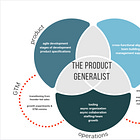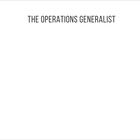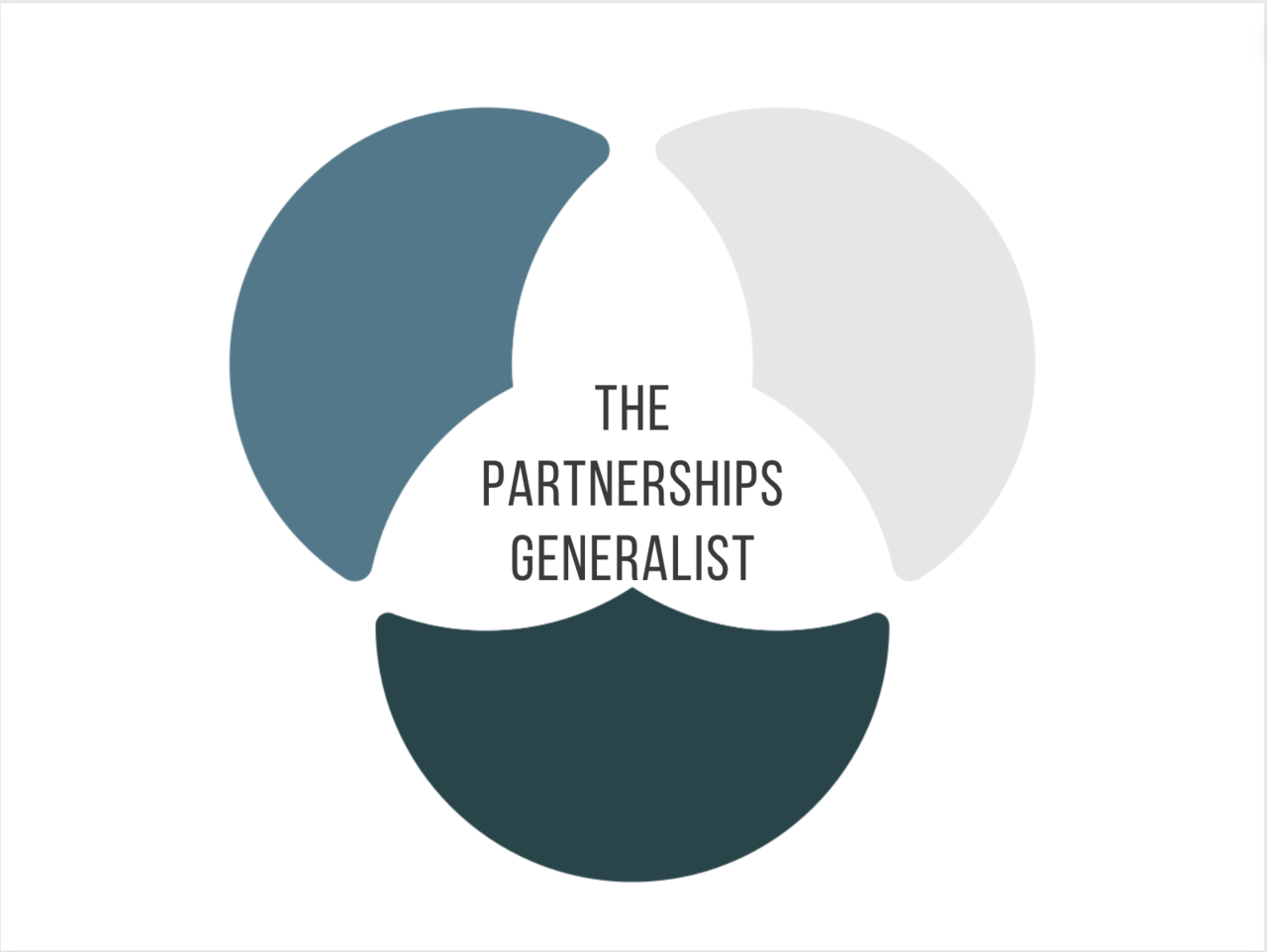What’s the difference between a partnerships specialist and a partnerships generalist?
The 6th in a new hWD series on generalist vs. specialist hires. This week? Partnerships
In an early-stage startup, the promise of partnerships can appear as a shiny path forward, a fix to hit your short-term revenue goals. Because of this, early partnership efforts can have an outsized impact on the development of your product or service, potentially delaying your ability to find true product-market fit. Recognizing this temptation to over-commit to partnerships too early will help you find the right balance between investment and experimentation. Christina Cordova, current COO of Linear, Stripe’s 28th employee, and former Head of Platform and Partnerships at Notion, shared her take as both a generalist operator and specialized partnerships team member on First Round. “They can change the company trajectory — in a bad way. ‘If you put half your engineering team on getting a partnership out the door, you might be abandoning critical work to find product/market fit,’ says Cordova. ‘Or say you’re working with an early partner and they end up becoming 50% of your business. That’s driving a lot of value, but it can be very dangerous if you fail to develop a great core business. And if you lose that pivotal partnership, it can be a terrible signal.’”
Understanding how to invest in partnerships with the right type of partner profile can be a great way to avoid typical pitfalls in partnership resource allocation to ensure you’re ready to press go when it’s really time. “‘Stripe hired me at the perfect time. They had done two or three partnerships, so they had some data and the strategy was starting to look successful,’ says Cordova. ‘But as is the case with many things in startups, partnerships can become this experiment you explore for a bit, only to find there’s not a there there.’”
Reframing partnerships in the early days
Regardless of stage, any partnership professional is responsible for:
identifying potential partnership opportunities across the organization that align with the company's strategic goals and objectives, establishing and maintaining relationships;
negotiating and managing partnership agreements, contracts, and terms across different business units or departments;
coordinating and facilitating communication between internal stakeholders and external partners to ensure alignment and effective collaboration, and monitoring and evaluating the performance and success of partnerships;
providing insights and recommendations for improvement or optimization;
acting as a liaison between the company and its partners, addressing any issues or concerns that may arise, and;
developing and implementing partnership strategies, policies, and best practices to streamline and standardize partnership management across the organization.
As founder-led sales start to wane, exploring and deeply developing other lead and revenue-generating functions can unlock the next level of PMF. But partnerships isn’t always the answer.
“Partnerships don’t make sense for most companies at the super early stages — which may sound funny coming from a person who did exactly that for a number of years,” says Cordova. “But it can truly become a big waste of time, and it’s a huge mistake to hire for it too early.”
Meaning – devoting previous capital to a full-time resource to engage in this work may not increase your ARR enough to justify the cash burn in the early days. However, considering a way to integrate partnerships into your experimentation by leveraging a generalist on the team can be a good fit, leading to greater cross-functional impact.
The Partnerships Specialist
The traditional partnerships specialist is a sales professional experienced in full lifecycle sales motions, often with deep relationships within a specific domain or ecosystem, often as an AE, that kickstart the function and accelerate the velocity of closed deals.
The Partnerships Generalist
Consider Cordoza’s work and background as outlined in First Round. “...she cemented her expertise in business development and partnerships, she’s also been a product marketer in a pinch, managed teams of engineers, led DEI initiatives, and hired everyone from growth PMs to developer advocates.” As someone with a successful career in partnerships, her ability to flex into multiple functions allowed her to drive value and impact through her employment while the learnings around partnerships developed. A partnerships person is a salesperson through and through, but leveraging experience in product, people, operations, and customer success can strengthen their work and allow you to fill in the gaps in the interim.
who You Need
Unless you have a proven path toward partnership success and a strategy that can develop quickly, hiring a partnerships specialist can slow down your startup’s velocity. But, as with all great startup approaches, remember the specific context of your business and avoid the temptation to adopt a one-size-fits-all strategy from another startup. Consider the opportunities that are in front of you and the most meaningful path that thoughtfully allocates your resources and then staff that vision appropriately.
TLDR
You can assess the need for your early org in how each profile approaches their work, measures impact, and solves problems.
Approaching Work
The Specialist: A specialist approaches work with a singular mission, focused on leveraging the relationships they have and their deep domain expertise to drive consistent results.
The Generalist: The generalist approaches work by “building the plane while flying it”. They’ll execute toward closing deals while building systems and nurturing customers in the process.
Measuring Impact
The Specialist: A specialist measures the impact by the number of closed deals and the size of those deals. Top-line revenue is their bottom line.
The Generalist: The generalist, as with any sales-oriented role, is equally measured by their ability to sign partners, but also by how well they’ve nurtured those relationships for repeat future business, as well as create and maintain systems for others to use in the future.
Solving Problems
The Specialist: The specialist is focused on the hunt and the close, laser-focused on finding the right prospects and getting a deal signed.
The Generalist: The generalist can leverage cross-functional expertise to better understand what might not be working if partners aren’t committing, and come up with creative solutions to experiment and iterate.
Before you go
While partnerships can be a growth avenue for startups, the function requires careful timing and strategic consideration. Overcommitting to partnerships too early can lead to missed opportunities in core business areas. Approaching partnerships as a potentially valuable experiment first can help ensure you’re integrating the right team member and making the right investment at the right time. Ultimately, deciding which profile to prioritize depends on your startup's stage, strategy, and readiness for partnership development. Assessing your needs in terms of approach, impact, and problem-solving style will guide you in selecting the right fit to accelerate your startup's growth effectively.
Writer: Britt









